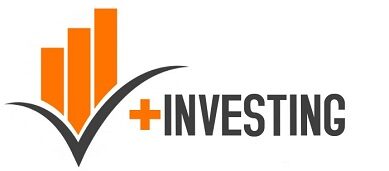In the current economic trend, it becomes essential to understand the implications of inflation on savings so that you can maintain financial stability. This is because inflation is when prices of goods and services increase gradually over time, and its implications significantly reduce the purchasing power of money. Considering a loan in Chennai or other states, can also help manage financial needs during inflationary periods.
In this blog column, we will understand how the effect happens and provide ways in which you can safeguard your wealth.
Understanding Inflation’s Impact
Inflation is the silent thief: it slowly and gradually takes value from savings you cannot see. It is defined as the rate at which the general level of prices for goods and services increases with time, causing the purchasing power of money to fall. Higher inflation means that each unit of currency will buy fewer goods and services, lowering the real value of your saved funds. For individuals with a tight budget, a loan for low salary can provide support to navigate rising costs.
This is why it’s not just a cumulative process over time but indeed makes inflation lethal and blows a huge hole in your savings over the years. Even modest inflation rates can sum up over the long term and destroy your financial goals, particularly when compounded over years or decades by a reduction in purchasing power.
Moreover, inflation does not spread across the various sectors of the economy. For example, many savings goals, like healthcare and education, are mostly on higher inflation rates than the average in the economy. That is to say, the variation calls for quite different inflation rates across specific savings goals.
This highlights that more than savings is needed, and measures must be taken to ensure wealth grows faster than inflation. This understanding is critical in devising ways to shield and increase the value of savings over time.
The Hidden Dangers For Savers
- Low-Interest Savings Accounts: While conventional savings accounts guarantee security, their interest rates usually cannot keep up with inflation and may even decrease the purchasing power of your money over time.
- Fixed Income Investments: Bonds and CDs (Certificates Of Deposits) pay fixed returns. However, these also do not insulate you from inflation since the returns paid to you by bonds and CDs cannot outstrip inflation.
- Cash Hoarding: Keeping large amounts of cash “under the mattress” or in low-yield accounts is particularly vulnerable to inflation’s effects.
Strategies To Protect Your Savings
- Invest in diversified assets: Diversify your savings into various asset classes, such as stocks, bonds, real estate, and commodities. These distribute the risk across the different possibilities but give returns at a growth rate higher than inflation.
- Consider Inflation-Protected Securities: Treasury Inflation-Indexed Securities, or TIPS, are bonds issued by the government that protect against inflation. The principal value increases with inflation and decreases with deflation.
- Invest in Real Assets: Real estate and commodities often appreciate during inflationary periods. These physical assets can be used as a hedge against currency depreciation.
- Explore Stock Market Investments: Stocks have historically been more inflation-positive over the long term. To gain broad access to all types of market participants, consider low-cost index funds or ETFs.
- Continuous Education and Skill Development: Investing in yourself is an essential strategy to keep you above inflation through higher income potential. Being relevant with new skills, certifications, or both will increase your earning potential.
- Regular Portfolio Rebalancing: Review and adjust your investment mix periodically to ensure that it remains in line with your goals and risk tolerance. This will help you optimize between growth and protection against inflation.
- Consider I Bonds: Series I Savings Bonds are securities issued by the government that offer a fixed interest rate and an inflation-adjusted rate. They can be an excellent tool for protecting your savings against inflation.
The Role Of Budgeting And Financial Planning
While sheltering savings from inflation is crucial, it is necessary to build and maintain a strong budgeting and financial foundation:
- Create and Stick to a Budget: Understanding your income and expenses lets you know where adjustments can be made to increase savings or reduce costs.
- Build an Emergency Fund: Aim to save 3-6 months of living expenses in an accessible savings vehicle so you avoid having to withdraw those long-term investments when unexpected things happen.
- Pay Down High-Interest Debt: Credit card interest rates are usually greater than inflation rates. So pay off these debt obligations first for your overall health in general.
Conclusion
Inflation is an economic realm that every saver must face. With this reality comes an excellent understanding of what it does and how you can act to protect your savings so that you may maintain and grow your wealth in the long term. The key is to stay informed, have diversified investments, and review your financial plan on a regular basis.
In such uncertain economic conditions or when one faces another unexpected bill, instant pocket-friendly loans can be a very smart investment strategy. Such loans can be availed of quickly, and there are no encroachments on long-term savings or investments. By spending these loans wisely for any short-term requirements or opportunities, you could keep your savings safe and secure from inflationary erosion. But always ensure you understand the terms of any loan you take to comfortably service it.
By integrating innovative saving strategies with diverse investments and responsible usage of financial products such as instant and pocket-friendly loans would build a solid financial foundation that can extend beyond time and inflation.

